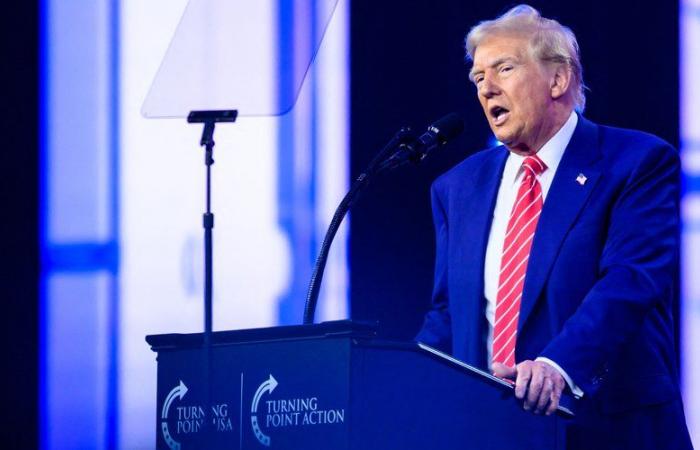the essential
The American President-elect has in turn assured that he wants to control or buy three free and independent countries or territories located near the United States. To weigh for a future negotiation.
What is Donald Trump playing? In recent days, the future president of the United States has successively proposed to buy Greenland, recover possession of the Panama Canal, and make Canada the 51st American state. Just that. “It was a pleasure to be able to have dinner with Governor Justin Trudeau and the State of Canada,” he first declared in mid-December using domestic political terms, while the words “President” and “country” would have been more appropriate for a neighbor independent since 1867. “For reasons of national security and global freedom, the United States believes that ownership and control of Greenland is an absolute necessity,” he said. he also wrote in a press release, while the island is a Danish territory.
Trump on all fronts
Finally, he considered that the Panama Canal was considered “a vital national asset of the United States, because of its essential role in the economy and national security of the country”, and that if it were not not sufficiently secure, “then we will demand that it be returned to us, in full and without doubt.” Three foreign territories, freely administered, but very strategic and located near the United States, Canada and Greenland to the north, the Panama Canal to the south.
These statements are typical of the winner of the presidential election of November 5, who had already presided, during his first term, by chin thrusts and sweeping declarations. His past in business, where anything goes as long as a victory results in the end, also trained Donald Trump in this kind of behavior.
What credit should we give to this? As is often the case with the Republican, one should not necessarily take his statements literally. These are as much pressure moves as bluffs, intended to move the lines. “You're asking for something unreasonable to be able to get something less unreasonable,” said Stephen Farnsworth, professor of political science at Mary Washington University in Fredericksburg, Virginia, who also believes that this strategy constitutes a first movement with a view to future negotiation.
The future President is in fact engaged in a war of influence with his neighboring and more distant countries, in order to establish the dominant position of the United States in the world. For example, we must understand the threat against the Panama Canal as a warning to China: America will soon be a hostile continent for the Middle Kingdom, accused of taking too much advantage of the passage between the two oceans that allows the Canal.
“The decades of American trade financing China's growth and its strategic footprint are over,” said Mauricio Claver-Carone, the Trump administration's special envoy to Latin America. It's a bit quick to forget that Donald Trump has already been in charge, from 2016 to 2020, and that even if he has indeed developed infrastructure there, China's influence in the region is largely exaggerated. More than half of the shipping traffic passing through the Panama Canal is to or from U.S. ports, avoiding the long journey around Cape Horn at the southern tip of South America.
Statements that don't pass
Obviously, the countries concerned by these declarations do not see it that way. In a televised address to the nation, Panamanian President José Raúl Mulino declared that “every square meter of the Panama Canal belongs to Panama and will remain so.” Canada has indicated that it is ready “to fight” if Donald Trump triggers hostilities, in the form of customs duties for example. “We are not and will never be for sale”, firmly assured the Prime Minister of Greenland, Múte Egede. Or when Donald Trump's chin thrusts no longer fool anyone.






